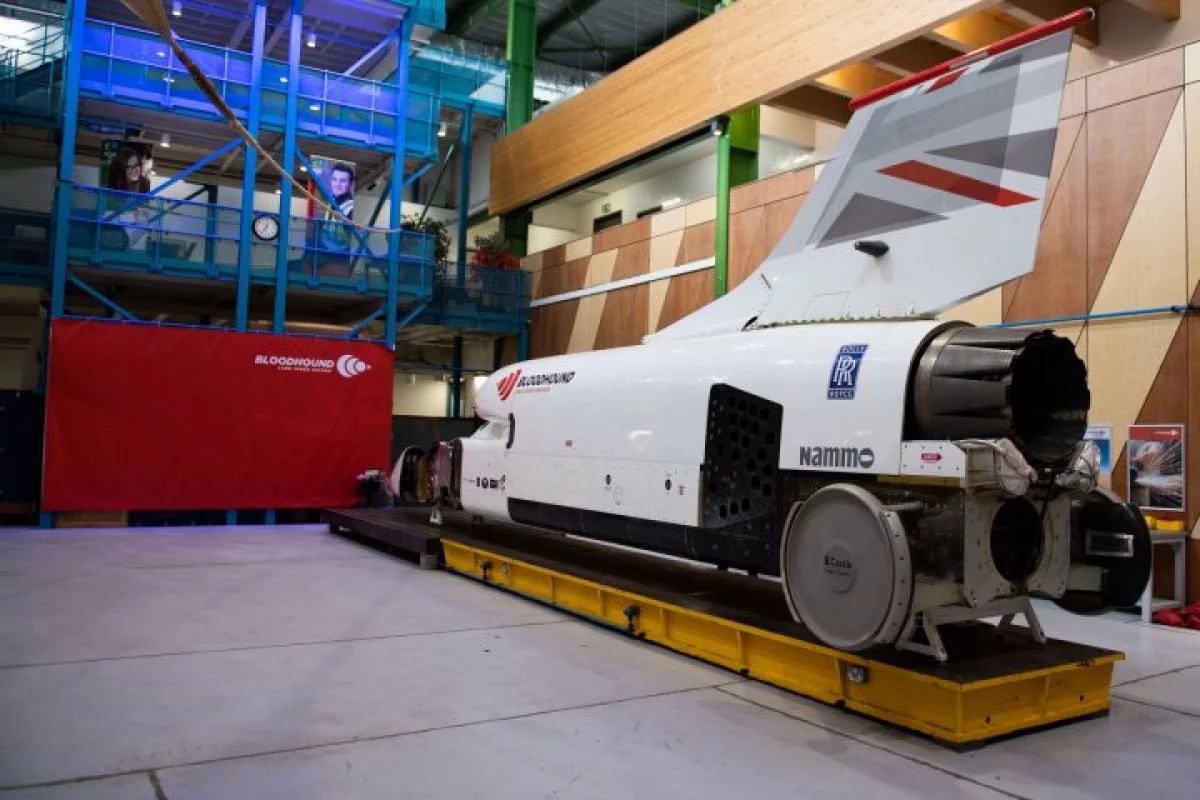Although the Bloodhound supersonic car recently reached its fastest speed yet, it'll still need some extra oomph in order to meet its next target of over 800 mph (1,287 km/h). To that end, its makers have announced that it's now being equipped with a zero-emissions rocket.
Currently, the Bloodhound LSR (Land Speed Record) is powered by a Rolls-Royce EJ200 jet engine.
Last November, in a run that took place on the Hakskeenpan salt pan in the Kalahari Desert, that engine took the vehicle to a top speed of 628 mph (1,010 km/h). Although pretty darn fast, that figure still isn't 763.035 mph (1,227.9 km/h) – that's the present land speed record, which the car is designed to beat. In fact, it is hoped that a top speed of 1,000 mph (1,609 km/h) may eventually be realized.
That's where the "green" rocket comes in.
First announced as a possible means of propelling the car back in 2014, it's made by Norwegian aerospace company Nammo. Initially, it was designed as part of a European Space Agency program, for use with small "CubeSat" satellites. It's therefore quite compact, so it can easily be integrated into the Bloodhound alongside the vehicle's existing jet engine.
Instead of traditional rocket fuel, the Nammo "monopropellant" rocket runs on concentrated hydrogen peroxide – that's water with an extra oxygen molecule. The liquid is pumped at high pressure through a silver gauze, which acts as a catalyst that causes the hydrogen peroxide to split into oxygen and super-heated 600 ºC (1,112 ºF) steam. Both the oxygen and the steam are channelled through a nozzle, generating thrust while producing no toxic emissions.
That said, a V8 internal combustion engine is presently used to pump the hydrogen peroxide through the rocket. Plans call for that engine to be replaced with a battery-powered electric motor, however, plus the Bloodhound team is also looking into switching the Rolls-Royce jet engine over to bio-fuel – it presently runs on Jet A fuel.
The car is currently back at its British base, the UK Land Speed Record Centre, where the Nammo rocket is being installed.
"I'm […] pleased that we are now able to bring many new, more environmentally-relevant technologies into the design of the project," says Ian Warhurst, CEO of the Bloodhound LSR group. "To inspire future generations of engineers, we need to be doing this with relevant technologies."
Source: Bloodhound LSR




